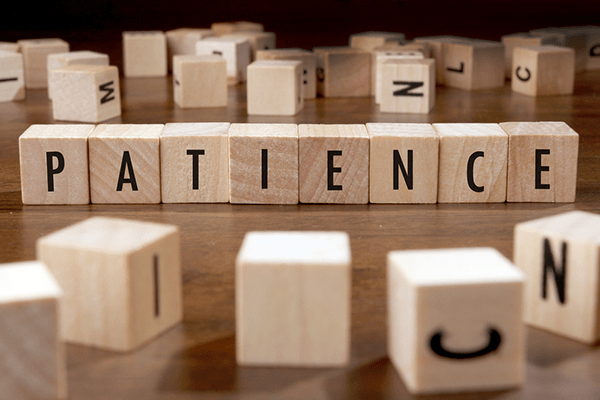Sometimes, striving to reduce your stress only leads to…more stress.
Traditional recommendations for stress relief–like bubble baths, meditation, or yoga–can work well, but they aren’t necessarily appropriate for a long commute, during an argument with a loved one, or while studying for an exam.
That’s why we’ve put together a list of practical, effective stress-busting ideas to ease your mind in any situation you’re likely to encounter!
What Is Stress and What Causes It?
Technically speaking, stress is any event, situation, or change that pushes you out of homeostasis.
In simpler terms, your body maintains a delicate balance between activity and relaxation, effort and comfort. Any time you encounter conditions that disrupt this balance, that counts as a stress response.
Stress and stressful situations can take an infinite number of different forms, and not all of them are bad. For example, giving a speech, a night of not enough sleep, and receiving a job promotion are all stressors.
Normally, most people can overcome stress, and may even become more resilient as a result. In fact, stress is a necessary part of life–without it you’d never learn anything, grow muscles, or learn from your mistakes, to name a few examples.
But if you don’t have the mental, physical, and emotional resources to bounce back, stress can take a toll on your health and wellness. This is especially true of chronic stress.
Why Should I Care About Stress Management?
When you’re repeatedly stressed and unable to recover adequately, stress can threaten your vitality and well-being. That’s chronic stress in a nutshell.
Unfortunately, mental toughness and determination alone aren’t enough to prevent the adverse effects of stress. Everyone has limits, and if you exceed your personal capacity for stress, it can take significant time and effort to recover and manage that stress.
While it’s possible to live for many years with unresolved stress, the problems it can cause are undeniable–and measurable.
Here are a few scientific examples to illustrate the negative effects stress can have in your life:
- Chronic stress and burnout sap your motivation, decision-making, and ability to think clearly (1) (2).
- “Toxic stress,” when stress exceeds your coping ability, suppresses your immune system (3).
- A stressful childhood affects your brain development and increases your risk for mental and physical health problems later in life (4) (5).
- Chronic stress may increase the risk of insomnia (6).
- Stress can raise your blood pressure, cause inflammation, and heighten your risk of heart disease (7) (8).
- Changes in your gut microbiome caused by stress can lead to irritable bowel syndrome (IBS), inflammatory bowel disorders (IBD), and depression (9) (10) (11).
- Psychological stress may spike your blood sugar, putting the brakes on fat loss and raising your risk of type 2 diabetes (12) (13).
The good news? Research shows that learning effective stress management methods or reducing your stress levels can actually change your brain for the better (14).
Instead of grinding through times of stress, it might be time to try some new stress management activities!
8 Stress Management Techniques to Manage Stress Today
1. Talk to a Stranger
“. . .sometimes one feels freer speaking to a stranger than to people one knows. Why is that? Probably because a stranger sees us the way we are, not as he wishes to think we are.” -Carlos Ruiz Zafón
It’s no secret that talking about your problems can help you feel better and find new solutions. Chances are you’ve already spoken to friends, loved ones, or a therapist about the things that bother you. Social support is of crucial importance.
But have you ever tried sharing with a stranger?
When you open up to someone you don’t know, it’s easier to get to the heart of the matter without feeling the need to explain yourself. And according to one perspective, they may be able to offer advice that’s more helpful because they don’t have any preconceived notions about you.
For extroverts, a park bench, bar, or coffee shop offers plenty of opportunities to test this advice.
Or if you’re on the shy side, a Facebook group (like “Need Someone to Talk To?,” or “Life, Marriage, and Relationship Advice”) or a Reddit.com Subreddit (like r/OffMyChest or r/KindVoice) can be excellent alternatives to engaging people face-to-face.

2. Take Conscious Breaths At Pivot Points In Your Day
“Feelings come and go like clouds in a windy sky. Conscious breathing is my anchor.” -Thich Nhat Hahn
Don’t skip this one! If it sounds too obvious, we’ve got a practical spin you need to try. This might be the simplest and most effective stress management tip here.
Oxygen is vitally important for your brain and all the cells in your body. But when you’re stressed, it’s likely you’re breathing shallow and fast.
Slow, deep breathing exercises help sharpen your mind, support a balanced mood, and help to regulate your cortisol levels (23).
What if you don’t have time to sit down and try deep breathing?
Try conscious breathing, just 1-3 breaths, every time you start a new activity in your day. During conscious breathing, you don’t put any effort into taking slower or deep breaths–instead, you just focus your attention on noticing the breath sensations.
That instant before you step out of the shower, when you plop into your car and are about to turn on the ignition, once you’ve parked and are about to make a dash into the office… take 30 seconds for YOU, turn your attention inward to your lungs and feel them fully expand.
And make sure to pay equal attention to the out-breath. Breathing in is something we do when we’re tense, alarmed, or worried, but breathing out is usually associated with relief, relaxation, or a feeling of calm.
If you can start practicing this during the little natural “breaks” in your day, you’ll soon find you’re able to keep the breath in background awareness even when you’re doing other things.

3. Ponder Zen Koans
“When both hands are clapped a sound is produced; listen to the sound of one hand clapping.” -Famous Chinese Buddhist koan
“Out of nowhere, the mind comes forth.” -The Diamond Sutra
While meditation can work, perhaps you’ve found it time-consuming, or too difficult to sit quietly when you’re super-stressed. That’s where zen koans can be helpful in stress management.
The literal translation of koan is “public case,” because they originated over 1300 years ago when Buddhist teachers wandered the land and taught anyone who was interested.
Unlike other forms of meditation, you can ponder koans any time of day or night, no matter what you’re doing. The proper way to approach a koan is to allow it to enter your consciousness, taking note of how it makes you feel, and to stick with it for a long time.
In some cases, a student will work with a single koan for years at a time!
Almost all koans take the form of a seemingly unanswerable question, or a mysterious phrase or instruction. That’s because the purpose of koans is to change the way you think, show you new perspectives on what you think you know, and ultimately guide you to a new form of freedom or even enlightenment.
Skeptical about the benefits of meditating with koans? Consider that this practice has existed continuously for over a thousand years. It emphasizes doubt, uncertainty, creativity, and humor as the best ways to find happiness and peace.
When you spend a few minutes or longer working with a koan, you just might discover that your everyday problems and the stress that generally comes with them don’t seem as difficult afterward.
4. Cultivate Patience
“Most of us spend too much time on what is urgent and not enough time on what is important.” – Stephen Covey
Sometimes a deadline or emergency creates an urgent situation that leads to stress, but other times we impose stress through our own habits of mind.
Do you allow yourself to feel like you’re constantly chasing social pressures (everyone has a bigger house than me!) or unrealistic standards (my home must be spotless at all times)? Unless you cultivate patience, it’s awfully easy to be too hard on yourself.
Impatience is like a toddler screaming in the back seat during a road trip: it doesn’t speed things up, it just makes the journey less pleasant!
Start by finding the natural rhythms for your everyday life that work for you. If you’re sacrificing sleep, family time, or relaxation to get things done, you might benefit from more patience.
Doing things at your own pace whenever possible–with breaks to renew your body, relationships, and mind–helps you stay comfortable, creative, and fresh.

5. Put Your Subconscious to Work
When you set a goal, your entire brain works diligently to help you make progress.
Sometimes, the brain’s most important processes can take place beneath the level of conscious thought. That’s why brilliant ideas often come to us in the shower, immediately upon waking, or when we’re stuck in traffic.
In other words, actively searching for a solution isn’t always the best way to solve a problem!
You can unleash the power of your subconscious mind by setting clear goals or intentions, then moving on to other activities. For example, sleeping, physical activity, or cooking a delicious meal are all excellent opportunities to put your subconscious to work for you.
Remind yourself of your goals or desire to find solution-focused answers once or twice a day, but don’t think too hard about them.

6. Spend Time in Nature
This is one of my favorite relaxation technique.
According to research, taking deliberate time in nature can reduce cortisol (the “stress hormone”) as well as other markers of stress (15).
In Japan, studies on forest bathing or “Shinrin-yoku” have examined the effects of being in nature for fifteen to thirty minutes at a time (16). Compared to equal amounts of time spent in urban areas, the studies found that people who go into forests or other natural areas experience increased calm and relaxation, and more supported heart health.
If you want to experience the calming benefits of nature, choose a beautiful area near you and set aside fifteen minutes or half an hour. It’s up to you whether to walk slowly or just sit and take in the sights, smells, and sounds.
While the benefits occur immediately, you’ll get better results by going into nature regularly.

7. Sleep More
It’s no secret that quality sleep is one of the best ways to recover from the detrimental effects of stress, but up to a quarter of American adults are chronically sleep-deprived (17).
Here are some tips to help you get more restful sleep each night:
- Set a consistent sleep and wake schedule and stick to it, even on weekends (18) (19).
- Get ready for bed in advance, before you get sleepy.
- Dim the lights and stop using screens two to three hours before bed to help your body release melatonin naturally (20) (21).
- Go outside (without sunglasses) for some natural morning sunlight to wake your body up and help you sleep better that night (22).
Whether or not you’re sleep-deprived, ensuring you receive top-quality sleep is essential if you want to recover from stress.

8. Make a To-Do List, Then Do This…
It might sound too simple to be effective, but making a to-do list is a fantastic way to put your stress into perspective and spend your time and energy more wisely.
If you’re overwhelmed with all the different things you need to do, start by making a large to-do list with everything on it. That way, instead of carrying everything around in your mind, you can free up some wasted processing power. Take some time to be thorough before you move on.
Next, grab a blank sheet of paper and choose just one or two things you want to accomplish today. They can be the easiest items on the list, or they can be the areas that are most urgent and will provide the greatest relief. Don’t rush this step, either.
Here’s the most important part: only focus on those one or two things until you get them done. Because you can’t possibly do three, ten, or a hundred things at once, it’s best to put the rest out of your mind.
You can use this trick to stay calm, focused, and realistic any time you’re paralyzed by a long mental to-do list!

Final Thoughts
As you explore the most effective stress-relievers for you, make sure you don’t stress out over de-stressing.
Start by choosing one or two methods to reduce your stress, then take a few days to experiment with them. You can always add more later.
Which techniques have you tried, and how did they work for you? Let us know in the comments!






